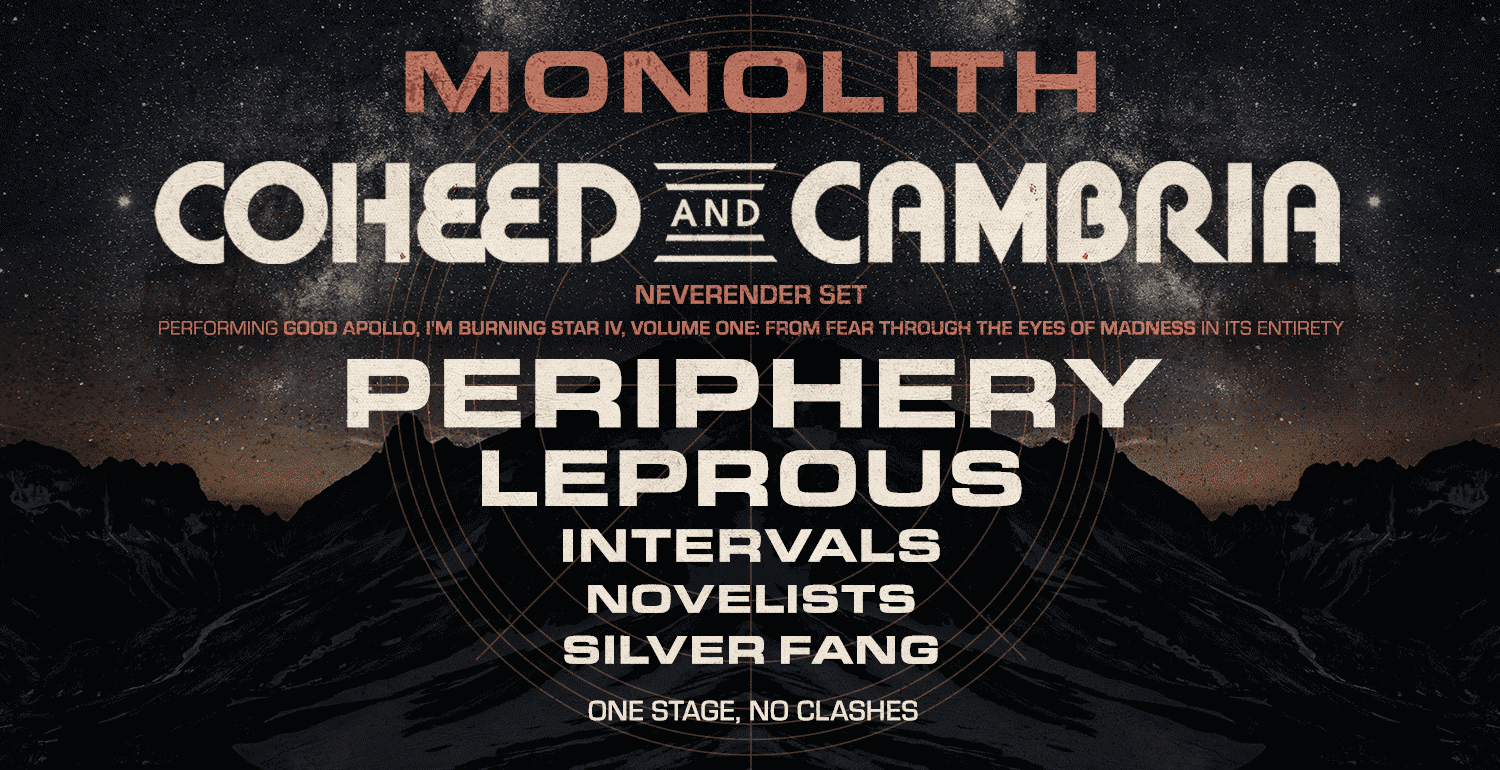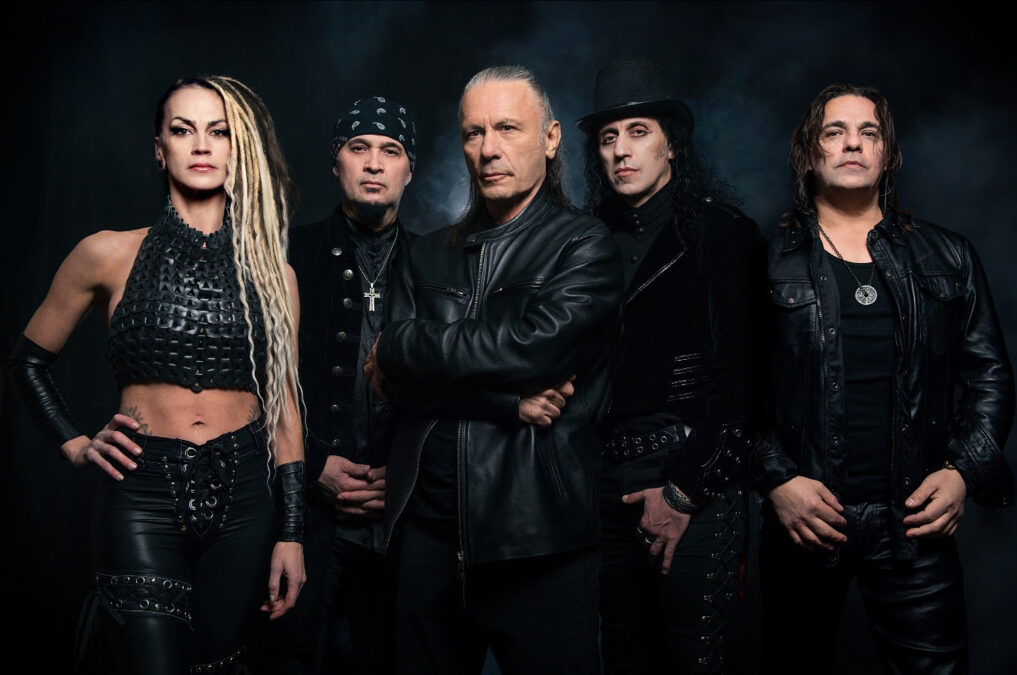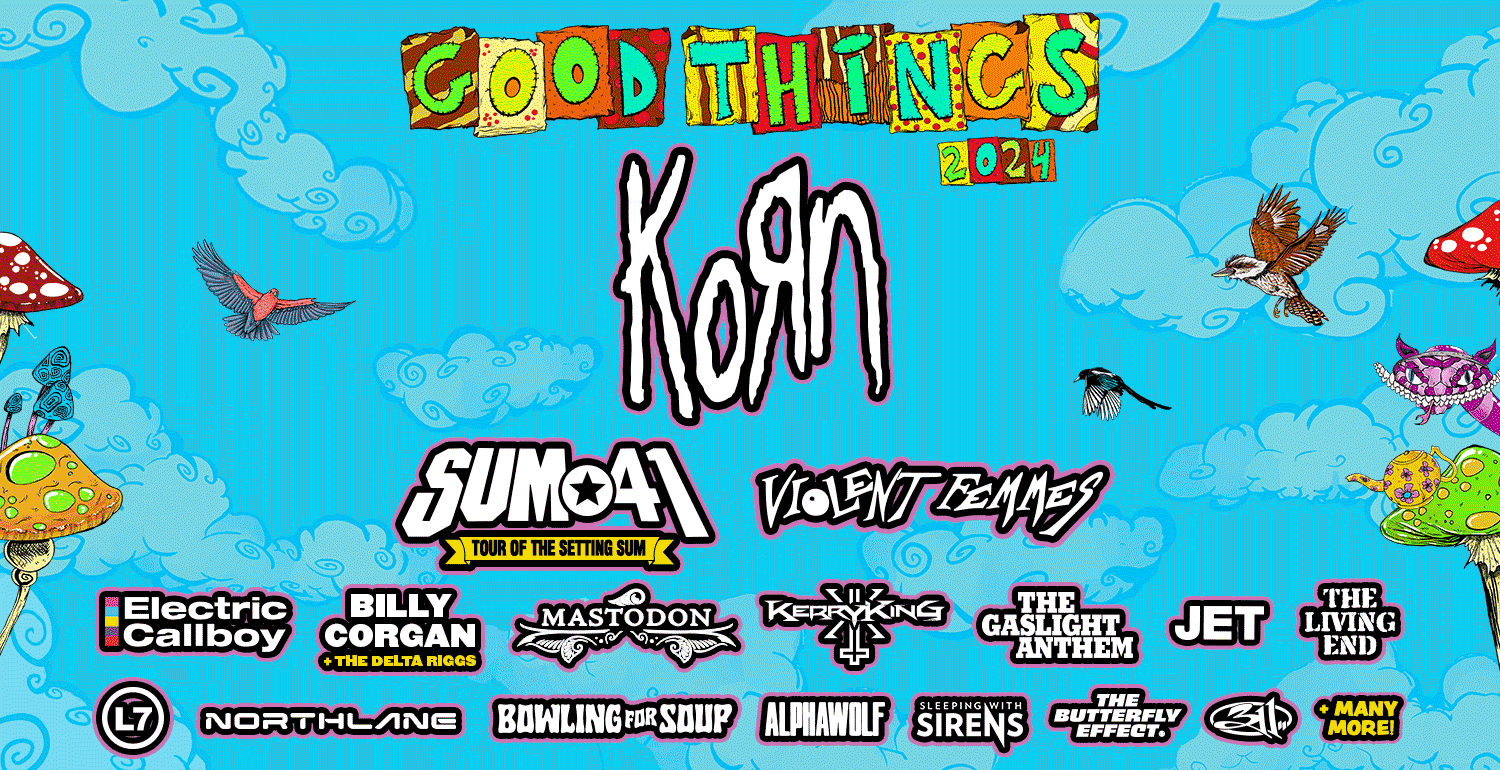It’s been almost 20 years since Bruce Dickinson released his last solo album Tyranny Of Souls back in 2005, but the wait is almost over with the release of The Mandrake Project on March 1.
Much has happened with Dickinson both professionally and personally between albums, and he pours the bulk of it out on this, his seventh solo album, which is once again completed with the assistance of Dickinson’s long-time collaborator Roy Z.
“Death, destruction and skull-doggery.”
Bruce Dickinson
Dickinson is no stranger to releasing albums between his solo project and Iron Maiden, but we pose the question if he still gets nervous in the weeks before an album drop.
“Nervous… I wasn’t so much nervous about this one,” he measured. “I was just really excited and frustrated. The whole thing is we spent seven years making this record because of COVID and all that rubbish and various other things. I got sick for a year with throat cancer, but basically after seven years we got together and made the record, and it’s been ready for release for about a year now. So people who have heard it are freaking out about it saying isn’t it amazing, wow, this is the best thing you’ve ever done, and I’m like ‘I JUST WANT IT TO BE RELEASED’.”
The Mandrake Project is an album seven years in the making, giving Dickinson time to pour more of his heart and soul into the musical aspect of the recording than usual. As a result, the album is more than just another hard rock release from the solo project of a famous frontman. It is more of a musical journey that transcends time, space and expectation that eventually comes back to the true essence of what got Dickinson interested in music in the first place.
“Well, obviously, back in the day looking at stuff I dealt with Roy Z,” he recalled, “who’s my partner in the record and the producer. He co-wrote probably two-thirds of the songs with me, the rest of them are all mine. We did two really good records, Accident Of Birth and The Chemical Wedding, which in the back end of the 90s people thought was a very influential record. And then we did Tyranny Of Souls then back in Maiden, so this was like unfinished business. There’s definitely another album here that we could do. Continue the line as it were, because we started to diversify a bit on the journey. Chemical was fantastically heavy, and we wanted to kind of go beyond both of those albums so have more diversity on this record but also make it… when it was heavy, it was really heavy (laughs). Things we couldn’t do, for example, in the context of Iron Maiden. Because Maiden’s got its own style, and we’ve got gazillions of songwriters in Maiden, so this is very much stuff where you say… some of this you would never hear on a Maiden record. So that was the basic idea with the album. I do need to mention that it looks like a concept album, but it’s not. There is a 12-episode comic that goes with… as a companion to the album, but it’s an independent, free-standing entity also called The Mandrake Project and the first issue was released on January 15. The Mandrake Project is going to go on for the best part of three years, so every three months we’ll do a new episode of a 34 page comic. End of this year will be four issues, or the first book if you like, and that will come out at the end of the year as a full, complete issue, and then we’ll crack on.”
“That and the album combined look like a concept,” he continued. “From a presentation perspective they are, but from an artistic perspective, they’re separate. They’re like two free-standing trees next door to each other. You can’t see the connection, but it’s there because the roots talk to each other. But that’s in fact what they are. If you listen to the album, but you never bother to have a look at the comic, that’s just fine. And vice versa. But if you dip in and out of both, it’s a lot more fun.”
Looking through the album track listing, there’s no song actually called The Mandrake Project to be seen, so we ask Dickinson what greater significance the title has.
“That’s quite an interesting point,” he smiled. “There’s no title track per se. The original title of the album was going to be If Eternity Should Fail, which is actually pulled from a Doctor Strange episode of the comic. That song got pulled off and put on the Maiden Book Of Souls album, so I was cool with that. I thought I will repossess the song when we get around to doing the album – which of course we didn’t for years because of all the circumstances. But when I finally came around to record that song I actually changed the title to Eternity Has Failed because I tweaked some of the lyrics and some of the story in the comic – there’s our little two trees connected by the roots again – and I thought I need a title that sums up both the record and the comic and ties it all together. And this is where the two things really start getting linked. I’ve had two pages of scribbling absolute garbage, silly names, I won’t tell you some of them because they’re embarrassing (laughs) and I just kept churning at it saying “no, no, almost, no, oh my God get down the pub and forget about it” and then finally – I don’t know why – the word Mandrake popped in my head and I had a good search of who else used anything Mandrake. I like Mandrake. I like The Mandrake Project because it sounds like some secret government clandestine thing. It sounds mysterious and you think what is that? That’s a great intro to a world. And that worked for the comic as well, because The Mandrake Project is the name of this scientific organisation that is clandestine, which has developed technology to effectively bottle the human soul at the point of death and store it and then re-introduce it into something else. I invented these two characters, Dr. Necropolis and Professor Lazarus and a very basic story. By the time seven years had gone by, and I’d been locked up for three years (laughs) in a little apartment with my girlfriend binge watching Netflix, the story had moved on and I’d actually done a bit of work on it and taken a bit of advice from friends of mine who are Hollywood screenwriters. I ran the story past Kurt Sutter, who wrote Sons Of Anarchy. We had a zoom call together, and I ran the development of the story, and he was the one who said that would make a great comic. I said what do I do, do I write a script and send it to Netflix, and he said no, it will go in the bin but do a comic. So it ended up at four episodes in one book, so I wrote a couple of episodes and thought no way is this four episodes. Eight episodes then, and in no time at all it was no, this is twelve episodes and that felt just right. I rang the comic company and they were great. I expected them to show me the door, but they loved the story. They loved the idea. It’s not a superhero comic by any stretch. It’s much darker.”
The Mandrake Project has become a deeply personal album for Dickinson, with the vocalist admitting tapping into his fears, problems and truths brought out the absolute best in him.
“I mean, all albums should be personal experiences,” he shrugged. “In my opinion, the best albums are, usually. This album wasn’t like therapy for me, but it kind of is in there’s a big sweep of emotion on the record. In particular, the last three songs really go to some very moving but in some ways tragic places. And I couldn’t have done that 20 years ago. There’s a lot of mumblings about life and death, quite a lot of death on the record, and that’s because I got a little bit closer to it than I really wanted to when I had throat cancer. I imagined I did anyway. You confront the possibility you might not be here in a couple of years, and you think well… how does that make me feel (laughs). Years ago when people asked me if the experience changed the way I thought about life I went ‘no, no, no, nah. No. It was just a bad cold’. But looking back nine years ago when I got diagnosed… looking back I realised actually yeah, it has changed the way I look at life. My perspective is unbelievably precious. Everybody should hang onto it and squeeze the last bits of life out of life. Right until your croaking breath because this may well be the only one you’ve got, and The Mandrake Project kind of addresses that. It’s like, is there a God? And if there is, what kind of God is he? Is he a poet? Maybe it’s just the force, Luke? Or maybe he does nothing at all. There’s a few things along with that. There’s a lot of underworld references, there’s a lot of… not too much sci-fi on the record.”
Before finishing up, we feel obliged to ask Dickinson what we can expect from the Iron Maiden tour of Australia later this year.
“Death, destruction and skull doggery mate,” he promised. “It’s gonna be amazing. I do 40 shows solo starting in April until 21st July, then I go lie down in a darkened room for two or three weeks and I wake up in Australia, and we start rehearsals in Perth. I’m really looking forward to it, we all are. We love Australia as a place, as a country, as the people who live there. We’re gonna have a blast. The only thing that would be almost as good as touring there with Maiden would be bringing this project down to Oz at some point. Obviously we’re not gonna be doing 10,000 seaters, but you never know. We’re pretty mobile. We’re pretty nimble. We’ll fly for food (laughs).”














